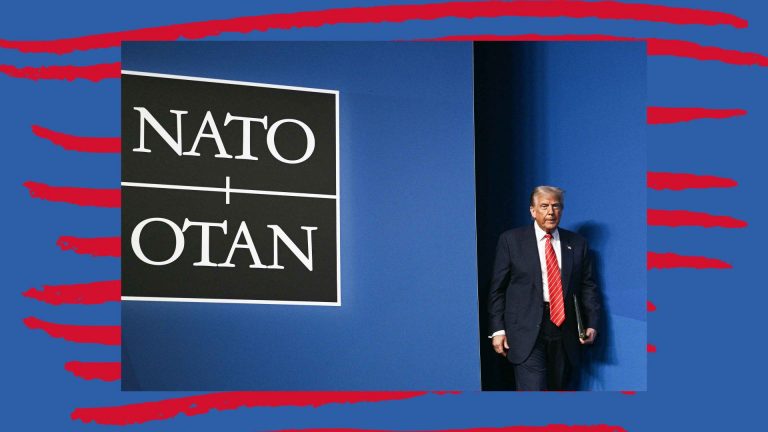Let’s be clear, since a lot of people seem to be finding that difficult: most people who get upset if they see black or brown faces in adverts are racists. There are few other reasons for seeing diversity in advertising to bother anyone.
The UK is, like it or not, a diverse country. About one in six people living here were born overseas. Around one in five people in the UK aren’t white.
These proportions are slightly higher in London, but ethnic minorities are distributed across the nation. Any image that reflects Britain will look ethnically diverse.
Reform MP Sarah Pochin, though, didn’t need to think this hard when she was asked by a caller on Talk Radio what she thought of seeing diversity in adverts. The easiest and most politically expedient answer, which would’ve rung true to 90% or more of the British population, would have been to say she’s never noticed it, never thought about it, and never been bothered by it.
Instead, she said it “drives me mad when I see adverts full of Black people, full of Asian people, full of people that are basically anything other than white”. Pressed on her comments by host Peter Cardwell, Pochin doubled down on multiple occasions, rather than spotting the situation into which she had landed herself. She said that showing black and Asian faces in adverts was “woke”, and that the “average white family is not represented anymore in TV advertising”.
A few hours later – perhaps after a stern conversation with Reform HQ, Pochin put out a mealy-mouthed apology of sorts. Pochin had, she explained, merely been trying to complain about the advertising industry going “DEI mad”. She added: “My comments were phrased poorly and I apologise for any offence caused.”
Maybe Pochin is that rare individual who gets incredibly worked up if any aspect of life doesn’t reflect British demographics. Perhaps she is just as angry that white people are over-represented in boardrooms, politics, and elsewhere, but has just never managed to say so publicly. Perhaps her obvious anger at seeing black and Asian faces was totally unrelated to racism.
But the public are obviously more than entitled to look at her remarks and conclude otherwise.
And yet much of the British political establishment seems to be going out of their way to defend her. Unsurprisingly, colleagues within Reform are at the forefront of doing just that.
Zia Yusuf resigned as chair of Reform immediately after a row caused by previous remarks from Pochin – who had endorsed a burqa ban, which Yusuf called “dumb”. Now, though, Yusuf has defended Pochin as a “great MP” and “close friend” who “must be able to talk about” the apparently very serious issue of representation in adverts.
Tim Montgomerie, the longtime Conservative who recently defected to Reform, rushed to acquit Pochin’s remarks – saying he did not think they were racist – but accused her instead of “political malpractice”, for speaking clumsily on an issue of race.
Montgomerie has a long track record of explaining what is and isn’t racist, of course, having previously accused Diane Abbott of being “too eager to see racism from Tories when there isn’t racism”.
Reform’s desire to downplay remarks from Pochin that are at best a horrendous gaffe and at worst a glimpse behind the curtain to dark views lying beneath is understandable enough. What is less understandable is the desire of Conservative frontbenchers to similarly sweep the issues aside.
The Conservative vote is currently being driven to the floor by voters defecting to Reform on one side, and the Tories driving off their moderates to other parties through their own increasing extremism. The chance to paint Reform as extremists making racist remarks should be a political open goal for them.
Instead, on the BBC on Sunday morning, shadow home secretary Chris Philp swerved the issue, merely saying he wouldn’t use Pochin’s “language”, bizarrely going on to connect it to expressing “legitimate concerns about mass migration”.
Suggested Reading


Reform’s poll lead will shrink
The national and global political backdrop of Pochin’s remarks matters. Robert Jenrick’s remarks about looking in vain for “another white face” in Handsworth belonged to another era. Tory MP Katie Lam is proposing a repatriation policy from the Idi Amin playbook.
In the US, as the Trump administration continues to cancel mention of the achievements of non-whites, the department of labor has, ever since Labor Day at the start of September, tweeted almost nothing but AI-generated 1950s-style art of white Americans alongside slogans like “BUILD YOUR HOMELAND’S FUTURE” and “AMERICANS FIRST”.
Overt racism is on the rise, offline and online, in the UK and the US alike. Prominent politicians making obviously racist remarks is more serious than ever against that backdrop – but the failure of mainstream politics to quickly and roundly condemn it is even more so.
Thankfully, such failure is not universal. While Labour has been slow to respond to extreme mass deportation policies put forth by Reform and the Conservatives alike, multiple prominent Labour MPs condemned Pochin’s remarks in clear terms within hours of her making them.
Health secretary Wes Streeting said Pochin was “only sorry that she’s been caught and called out and she said the quiet bit out loud”. Labour chair Anna Turley issued a statement saying “defining British people by the colour of their skin is completely unacceptable”.
Backbencher Ben Goldsborough was perhaps clearest of all. “It’s beyond disgraceful,” he posted. “Enough is enough: this ethno-nationalist obsession is infecting British politics and it has to stop.”
British politics is heading into a dark place, and too many politicians seem to think it’s expedient simply to ignore that. But as the politics of racism and division become uglier and more explicit, the need to call it out strongly and rapidly only becomes more urgent.
Pochin’s idiotic remarks serve as an easy test, a low-stakes case which should be easy for any politician to condemn. Thankfully, most in Labour seem to have passed – but the Conservatives’ failure is notable, worrying, and one to watch.











